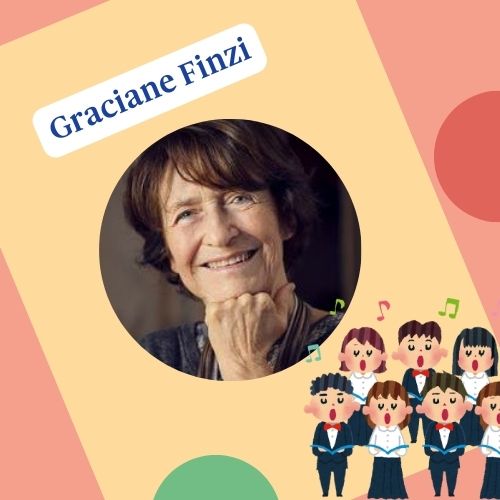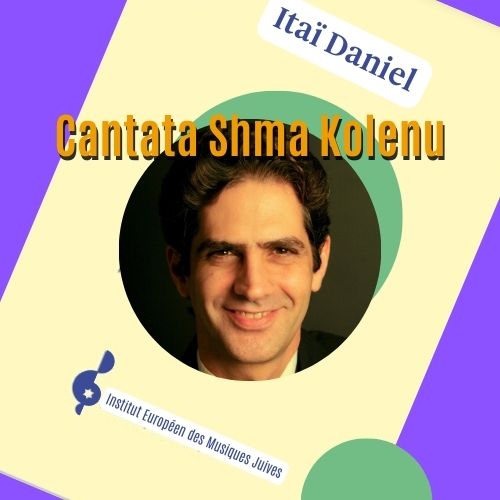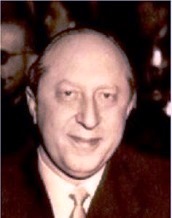
Jacques Kluger was born on January 23, 1912 in Antwerp. His father, Maurice, a diamond merchant born in Wisjnicz in Galicia (now in Poland) in 1883, moved to Antwerp in 1905. He participated in the foundation of the diamond exchange and married Rosa Steger, born in 1889.
Jacques grew up in Antwerp – home to Belgium’s largest Jewish community – where he enjoyed playing tennis and billiards. After returning from exile with his family to the Netherlands during the First World War, Jacques finished secondary school and learned no less than four languages: French, English, German and Yiddish (which was invaluable on business trips and enabled him to communicate better with his father), in addition to his mother tongue, Flemish. However, Jacques did not pursue higher education
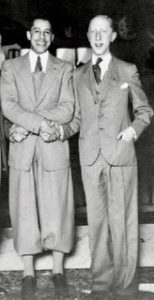
and started working in 1929, in the middle of the economic crisis. Because of his father’s profession, he was destined for the diamond industry and tried his hand at diamond cleaving for a year, but his passion for music decided otherwise and at 18, inspired by his idols Duke Ellington and Cab Calloway, he formed an amateur jazz band called “The Collegians”. A true self-taught musician, Jacques began to play jazz, which was not a conventional music at the time. With his orchestra, which he directed and where his brother Johnny was on drums, he won many competitions. He was spotted and signed a contract with Flemish radio to present the first jazz radio programme in the world.
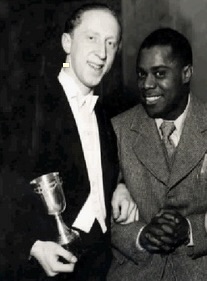
In the 1930s, Jacques organised a series of concerts in Brussels and Antwerp with Duke Ellington and Louis Armstrong, among others. He also performed every weekend with his band at dances. It was also during this period that he married Adela Rozenbaum in 1935, whom he had met ten years earlier. She was the niece of his father’s business partner and had come from Miechow in Poland at the age of thirteen to work as a diamond cutter. Two years later, their first son, Jean, was born. Thus, at the dawn of the Second World War, Jacques was settled in Antwerp, married and a father fully committed to his musical passion for jazz.
When the war broke out, Jacques fled the Nazi presence and took his family to Clermont-Ferrand, then thinking that the situation would normalise and that he could go to the United States, he returned to Antwerp. He was obviously mistaken and was arrested on Christmas Eve 1941 in a recording studio with Felix Faecq, president of the Belgian jazz club, for recording and promoting American music. After 23 days in the prison of Saint-Gilles, they were released. Always an optimist, he did not leave Antwerp again until November 1942 and took refuge with his family in the free zone, in Villeneuve-de-Berg in Ardèche, where his second son, Roland, was born in April 1943. As soon as the first American troops arrived in June 1944, Jacques and his brother Johnny returned to Antwerp. Jacques’ family will join him in March 1945 due to the vicissitudes of the war.
At the end of the Second World War, a new era began, and Felix Faecq, who had taken over the music publishing company World Music Company from his mother, suggested that they join forces. Quickly understanding the interest of mastering the whole chain of musical production, they set up a label called Victory with which they signed Ray Ventura’s orchestra and his new singer Henri Salvador. Jacques also organised concerts for American troops stationed in Germany as part of the Marshall Plan. In 1949 his third son, Ludovic, was born. At the beginning of the 1950s, taking advantage of the growth of the record industry led by the LP revolution [1]Jacques Kluger and Felix Faecq were the first representatives in Belgium of the Mercury company with the new 25 and 30 centimetre LP, he and Felix Faecq opened subsidiaries in London (Good Music) in collaboration with Ted Heath, in New York (Zodiac Music), as well as joint ventures around the world. The effervescence of the music publishing industry and Jacques’s appetite for international business led him to travel a great deal – even though the travel and stay times were still long – and he took advantage of these trips to enrich his editorial network and to form partnerships with Wesley Rose in Nashville (Everly Brothers, Roy Orbison), Ralph Peer in Los Angeles (Brazil Tico Tico), Jimmy Philips in London, Sugar in Italy, and Rolf Marbot and Raoul Breton – the iconic publisher of Trenet, Bécaud and Aznavour – in France. At the heart of this frenzy, in addition to signing worldwide copyrights such as Lullaby of Birdland, he produced and exported worldwide hits such as La Petite Valse (‘The Petite Waltz’) of which there are over 200 versions to date, including Errol Garner’s. He became the father of Flemish song as publisher and producer of the then number one artist in Flanders, Bobbejaan Schoepen, but also Bob Benny, Jean Walter, Will Tura and Louis Neef. In 1958 he set up a new record company, Palette, together with Felix Faecq, which had a number of international hits, such as Manhattan Spiritual by Reg Owen and Hawaii Tattoo by The Waikikis.
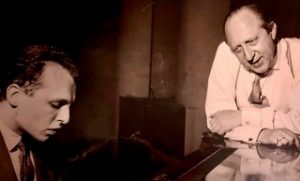
Beyond music, Jacques loves creators and they give him their due. He looks for talent and cannot resist it, wherever it may be. Thus, he met many artists whose careers he would change, such as Annie Cordy, Eddie Constantine, the Dutch lyricist Ernst Van Altena, or the soloist Alexis Weissenberg. He was also the first publisher of Jacques Brel in Brussels (Il peut pleuvoir), the producer of six albums with Dolf Van Der Linden and the Hilversum Radio Orchestra in Holland and Alice Babs in Sweden. He also enabled Toots Thielemans, the composer of Bluesette, to move to New York to join George Shearing and record with Benny Goodman. In 1950, the American label Bally Records commissioned him to produce a series of jazz albums in Europe, with in particular for France the pianist Claude Bolling, to whom Jacques was his best man for his wedding.
For Jacques, the projects and successes follow one another. He produced several albums for the Capitol label in Los Angeles, including Jewish Music – Melodies Beloved the World Over, a recording of 21 Jewish melodies arranged and orchestrated by
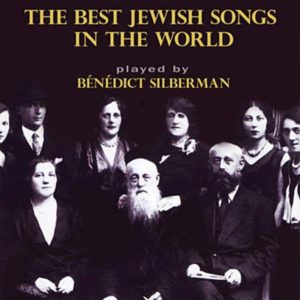
Benedict Silberman, accompanied by the Dutch Radio Orchestra. This project allowed him to pay tribute to his father, who had recently passed away and was a great lover of traditional Jewish music. His mother, a talented pianist, helped him transcribe the songs and melodies she used to play on the piano when she entertained her husband’s many guests at the end of Shabbat evenings after the synagogue’s service. This record, which met with some success, was followed some time later by the release of a second LP entitled Jewish Memories, featuring 14 new melodies. These two records have been compiled and reissued several times on different media, both on audio cassettes (The World of Traditional Jewish Memories) and on CDs (The Best Jewish Songs in the World, played by Benedict Silberman or 30 greatest Jewish Songs, played by Benedict Silberman).
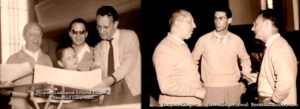
At the end of the 1950s, his two eldest sons, Jean and then Roland, began working with him. Unfortunately, in 1961 he was struck down by Charcot’s disease (ALS), which was incurable and very quickly prevented him from continuing any activity. He passed away two years later, on May 26, 1963, at the age of 51, thus cutting short a life that had been full of music, travel and encounters. He accomplished in about fifteen years what must have been a lifetime and knew how to live for his passion. Unfortunately for him and his family, he lacked only one thing: the time to enjoy it.
Biography written in April 2022 by Arthur, one of Jacques Kluger’s great-grandsons
| 1 | Jacques Kluger and Felix Faecq were the first representatives in Belgium of the Mercury company with the new 25 and 30 centimetre LP |
|---|

